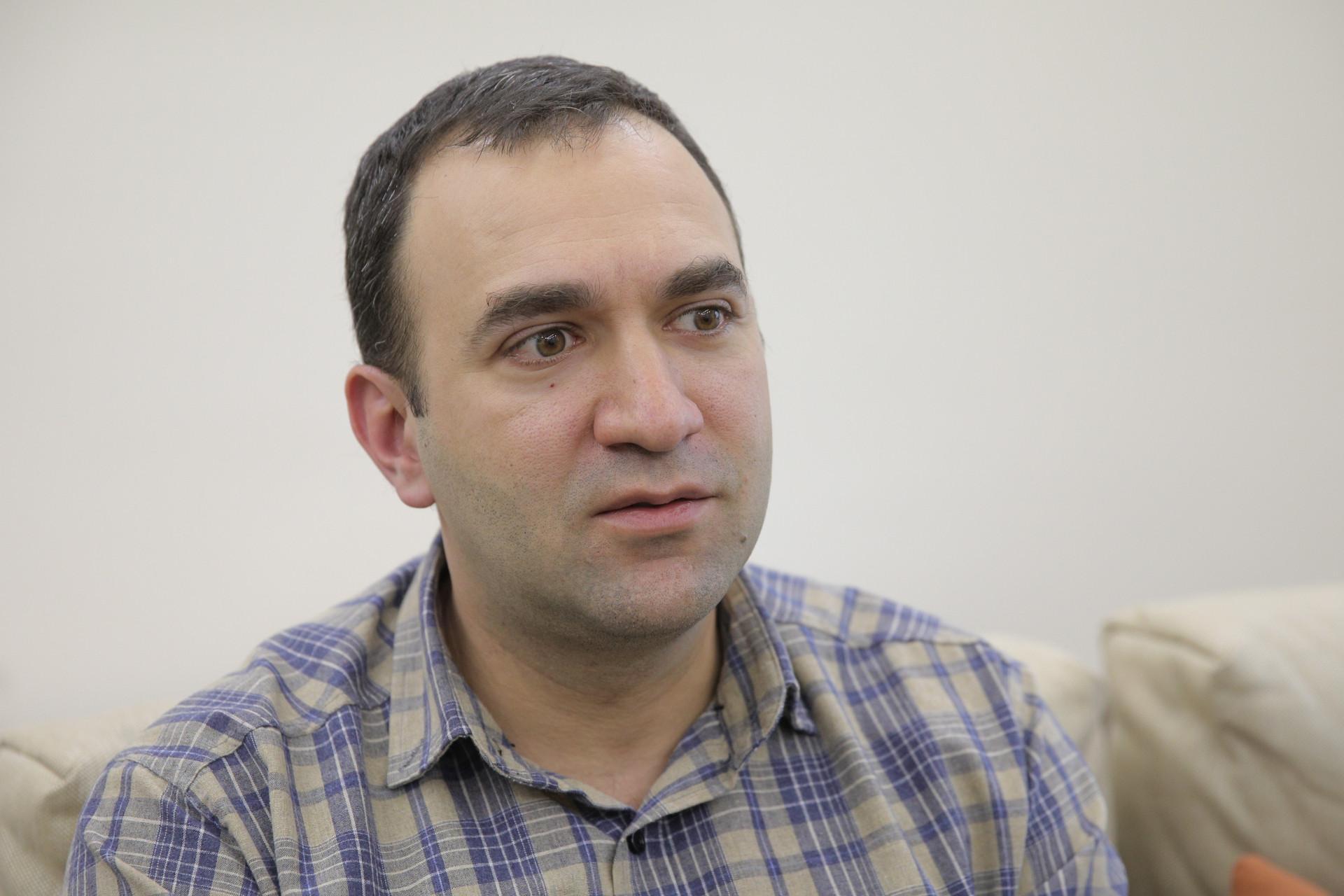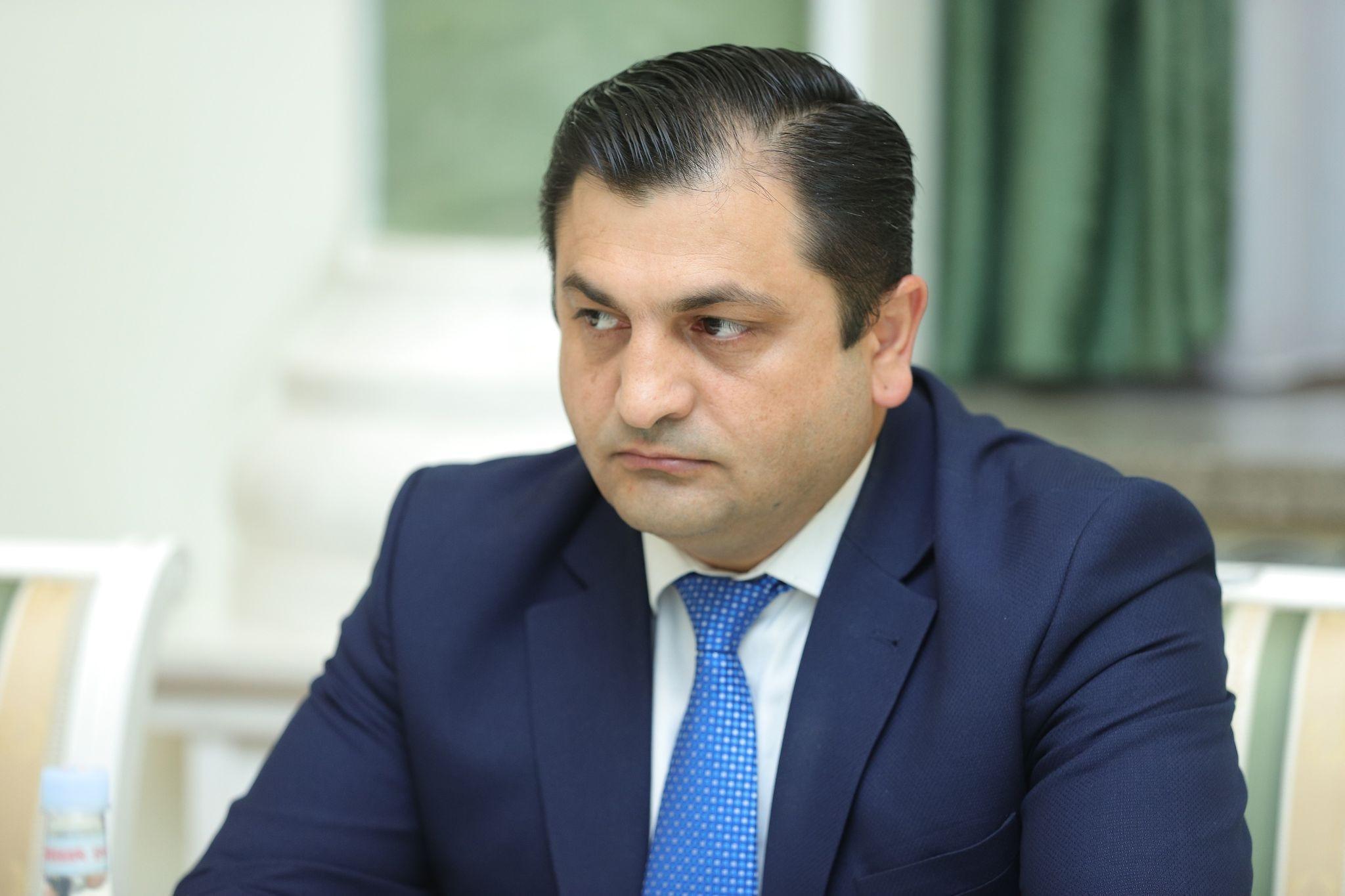
Armenian Prosecutor General Wants to Monitor Internet Content
PGO officials claim new rules will only monitor “banned” content. Others argue they can be used to restrict freedom of speech.
Armenian Prosecutor General Artur Davtyan, in a letter today to the government, proposes that various state agencies discuss the issue of subjecting the security of information spread over the Internet to legal regulation and implementing state control over such content.
The main problem with this proposal is that the prosecutor's office wants to monitor media publications and unsolicited posts by Facebook users, thus duplicating the functions of Russia's Federal Service for Supervision of Communications, Information Technology and Mass Media (Roskomnadzor).
Davtyan, in his letter, noted that Russia has created a list of “proscribed” information (including information on suicide methods and inciting suicide, preparation and use of narcotics, psychoactive substances, involvement of minors in illegal behavior, sale. information containing the offer of retail sale of restricted or prohibited drugs, alcoholic products, etc.) that needs to be blocked.
Once Russia’s prosecutor general sends Roskomnadzor alerts regarding such “banned” information, the agency then immediately requests that the author(s) immediately remove it and not spread it via the internet.
Armenian Prosecutor's Office, in its letter, also mentions, as an example, Germany’s law "On improving the state of law enforcement in social networks", according to which it is prohibited to promote an organization recognized as unconstitutional, to prepare a serious act threatening the state, to spread literature motivating the execution of such an act, to encourage criminal behavior, national, religious, sexual or other information inciting enmity and other information, and social networks have been put under the obligation to remove or block information that contradicts the law.
A tool to restrict freedom of speech?
Critics of such legislation argue the Russian government uses it to silence government opponents, given that the law is quite arbitrary and not subject to judicial review.
Armenian information security specialist Artur Papyan believes the Armenian Prosecutor General’s Office wants to create another tool for persecuting and punishing people.
Papyan told Hetq that there is no public demand for establishing such internet monitoring.
"If this was an important and key topic for the public, why isn’t the National Assembly, the legislature, raising it? I find it very strange that the example of Roskomnadzor was cited in the report, because my first impression was that they wanted to create such a body. In recent years, as much as there are restrictions on the Internet and freedom of speech, in almost all cases, initiatives start with statements about protecting minors, then you see that these projects take a different direction. In other words, I don't trust the motivations as to why the prosecutor's office took the initiative. The explanations are not very convincing, nor are the examples," Papyan said.
Papyan believes this initiative of the prosecutor's office can be very dangerous, and it would be good if the interested parties, political society, the journalist community, pays close attention, so that it does not become a club in the hands of the prosecutor's office. And even if the initiative is approved, it should be done considering the considerations of the interested parties and guaranteeing the protection of freedom of speech.
The Armenian Prosecutor General’s Office (PGO), in its letter to the government, says there has been an increase in the spread of national, religious, sexual or other discrimination on internet websites and social networks, and other banned content in Armenia, including drug advertisements, and that there are no legislative regulations in Armenia to prevent the distribution any monitoring of such content.
Papyan points out that he is generally against the idea of restricting the Internet, even though the authorities must fulfill their duty to prevent crimes.
He believes, however, that the prosecutor's office should not engage in such initiatives.
"This implies the creation of a certain set of tools, that is, to implement this initiative, monitoring tools and platforms must be created that will monitor what kind of content is distributed. After creating all this, punishing and prosecuting will be just a technical issue," Papyan says.
Prosecutor General’s Office says the information security issue must be discussed
Gor Abrahamyan, an adviser Prosecutor General Artur Davtyan, told Hetq that the proposal was made based on criminal case data and research on media outlets and social network posts. Abrahamyan says current regulations are inadequate to ensure information security.
Abrahamyan claims the proposed legislation, if approved, will only monitor publications that incite enmity, justify criminal activity, advertise drugs, etc. He says the government will take all necessary steps to guarantee the new regulations are not used as a tool to limit freedom of speech.
When asked if the Armenian prosecutor's office proposes to create a new body or to give supervisory functions to an existing body, Gor Abrahamyan said the prosecutor's office isn’t proposing any mechanism now but has cited examples of how the field is regulated in different countries.
According to Abrahamyan, the PGO has simply pointed out the existing information security problems in Armenia and the need to solve them.
The mechanisms to do so are up for discussion, he said.
On April 7 of this year, the Armenian government said it was ready to approve a Ministry of High-Tech Industry proposal that Armenia sign an agreement with Russia designed to expand the coordination of information security between their two governments.
Armenian PM Nikol Pashinyan signed the agreement on April 19, while in Moscow on an official visit.
Abrahamyan told Hetq that the prosecutor general’s proposal has nothing to do with the April 19 agreement.
 Videos
Videos Photos
Photos


Write a comment